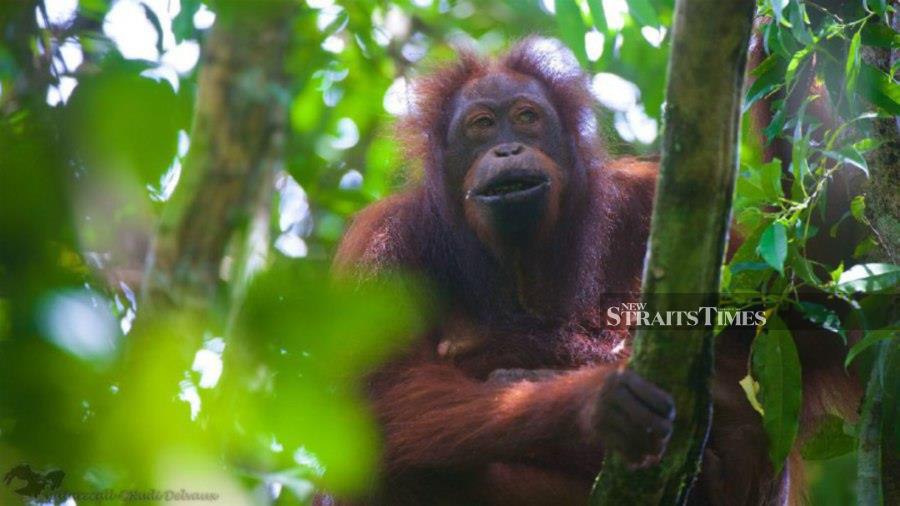By Olivia Miwil - March 11, 2022 @ 5:19pm
KOTA KINABALU: A new study suggests that a better investment strategy is required to protect the orangutan species.
The research titled "Effectiveness of 20 Years of Conservation Investments in Protecting Orangutans" was published yesterday in Current Biology.
The study shows that orangutans are still rapidly declining despite more than a billion US dollars (RM4.19bil) invested in conservation between 2000 and 2020.
One of the researchers, Professor Erik Meijaard said an important part of the study shows what has been invested might not be particularly good for orangutan survival.
"The study really shows us that if we want to save the orangutan from extinction, we need to invest in the basics of nature conservation which is the protection of species habitats and working with local communities to reduce threats such as killing and capture," he said in a joint statement issued by Danau Girang Field Centre and the Hutan non- governmental organisations (NGO).
The research lead author Dr Truly Santika said considering the urgent need to conserve biodiversity, it is important that cost-effective analyses are developed to optimise the investment of limited conservation dollars.
She added that habitat protection, patrolling, and community engagement strategies had the greatest return-on-investment for maintaining orangutan populations.
"Restoration of orangutan habitats through reforestation was especially expensive compared to forest protection and management.
"Rescue and release of previously captured orangutans had low-cost effectiveness because it had little deterrent effects on illegal orangutan killings and trade, and it did not increase wild populations within current species ranges."
Julie Sherman, one of the contributing researchers, also said that rehabilitation and release is an important tool to recover species that have few individuals left in the wild.
"If we act now, we can protect wild orangutans in their natural habitats, which is much more cost-effective than trying to restore their population once they have been killed, captured, or displaced from their homes."
In the Malaysian part of the orangutan range, land prices and labour costs are much higher than in Indonesia.

Comments
Post a Comment